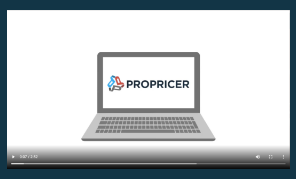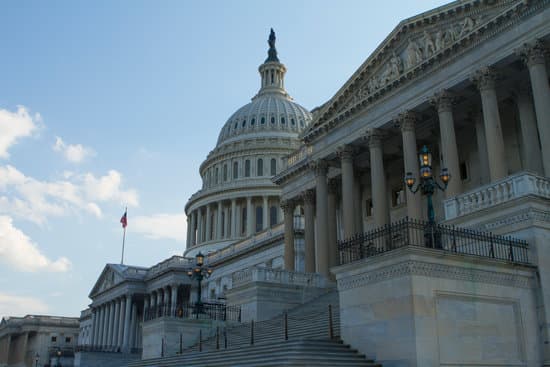Proposal pricing isn’t as tricky as you think. And your margins don’t have to be as low as you’ve heard government agencies require. Sure, there will always be obstacles to overcome on your path to pricing success. But these shouldn’t include the pricing myths pervasive in the contracting process.
In government contracting, a myth is often based on an old status quo that has evolved to become something equitable. Yet its outdated story sticks for a few years or even a few decades.
Learn about six of the most prevalent pricing myths here, and how to bust them in their tracks.
Myth: The low bidder always wins.
Fact: The best-value contractor often wins.
Some Federal contract awards consistently land in the laps of their respective low-price bidders. For instance, it’s the nature of Lowest Price Technically Acceptable (LPTA) contracts. But with LPTAs, you know from the outset that the lowest bid will win the contract, with all other technical competencies being equal among the bid candidates.
But most of the time, Federal as well as State agencies have the prerogative to award contracts to firms that bring the best value to the table. Over the past two decades, the government has been quicker to realize that a minimal price point on a contract doesn’t always equal a low cost, especially if there are quality issues with deliverables, ancillary fees for changes, rate hikes as a result of proposal amendments, and the like.
In reality, an award to the lowest bidder is now more of an exception than a regular occurrence. Agencies are finally following industry’s lead on this practice. It’s been quite a long time coming, but it’s here.1
Myth: You assume all the risk in firm-fixed-price contracts.
Fact: The government shoulders just as much weight.
Yes, you as a contractor may be held to a certain standard of work for a set fee during firm-fixed-price (FFP) federal contract awards, however, if you’re prudent in your costing and careful in your execution, you can still make a handsome profit at the end of your contract day.
Meanwhile, the government has to watch out for quite a few potential slips on its end. An agency may have to liquidate for damages if a contract goes sideways, or terminate a contract for default if your performance turns out to be consistently inadequate. It loses money in both scenarios.
If an agency has been vague about specifications in the Statement of Work section of an RFP, you can deliver the finest product imaginable, yet the government can still come up empty-handed. Through no fault of yours, the agency involved doesn’t have what it wants. But, you still get paid as you’ve delivered to requirements.
In these cases, the agency’s lack of clarity can cost it substantial money. 2
Myth: Government-furnished property lowers your costs.
Fact: GFP can actually increase your costs.
Be careful when an agency offers you government-furnished property (GFP) to fulfill the terms of a contract you’ve won. You might think the provided materials will always decrease your hard costs, giving you more room for margin. In many cases, you would be wrong.
Statistics show that GFP is often defective, damaged, delivered late, or a combination. Add to this the rules you’ll have to follow in dealing with such GFP as specified in FAR Part 45, and you could incur significant expenses as you identify and mark the property’s issues, ship the property, track the GFP’s progress back to the agency, and document every step you take.
If you decide to keep and use sub-par GFP? You’ll be responsible for repair and maintenance costs yourself. 2
Myth: Agencies don’t share proposal pricing data.
Fact: Agencies often share with others, to contractors’ benefit.
Though agencies are under a huge obligation not to disclose proprietary information to the public, the misnomer that they can’t share contract pricing data with other agencies is just that—a misnomer.
Agencies are encouraged to share pricing data on federal contract awards. It’s one of the ways they serve as the proverbial check and balance on one another, ultimately ensuring that taxpayer dollars are wisely spent.
This practice is a plus for you too. How? If an agency awards a contract at a ridiculously low price, their colleagues in adjacent agencies may call them on it when data is shared. Overhead recently in a conversation: “Quality work can’t just materialize for this amount.” Bids have been known to “adjust-up” in price when an agency isn’t afraid to take another to the mat.
Myth: A bid protest is something to avoid at all costs.
Fact: A protest can benefit both contractor and agency.
You may think an agency is defective in its judgment on a pre-award. Or that there’s a lack of cost realism in an RFP’s statement of work. Or you might not understand ambiguous content in an RFP, causing you to feel less than confident about your proposal. You can and should challenge the procurement by voicing your concerns, especially if the contract is one of high dollar value.
Will this put you at risk of retaliation? Contrary to popular belief, the answer is “no.” Your agency shouldn’t be deprived of potentially useful information, and you shouldn’t be deprived of negotiating your best solution as well as price.
Speaking of best solutions: Your client agency’s ultimate objective is the absolute best procurement for a contract, and industry agreement with an RFP (conversations with contractors like you) can often help you improve your product and create the best value for both parties.
Contracting officers realize that responsible communications during a protest situation help contractors get discovery information to produce a more meaningful and valuable proposal—information that probably should have been thought through by the agency before the release of the RFP. 5
Myth: Your pricing proposal’s format makes no difference.
Fact: Your proposal’s format can increase your wins.
If you’re like many contractors, you’ve been creating proposals in Excel for years with limited success in terms of controlling formatting consistency, graphic aberrations, and data disappearances. Then there’s the challenge of making sure your prospective agency client can open your files and see exactly what you see. It’s “answered prayers” the few times that can happen—often the result of your agency using the same version of Excel that you use, just by chance.
It’s no secret that government agencies prefer to do business with the contracting firms they’re comfortable with, which makes their jobs easier. Being on the same proposal software platform as your agency client can make a big difference in your contract success.
Many agencies today use ProPricer Government Edition. The software erases the modeling process the government typically has to go through each time a contractor submits a proposal. ProPricer easily imports your proposal file and creates an instantly organized view of your pricing data—with your fully-functional cost model intact and ready to use for inspection and negotiation.
As a contractor, you’ll want to look at ProPricer Contractor Edition. Fully compatible with Government Edition, it’s a massive time-saver for your organization, and 5X faster than Excel-based platforms. Improve bid efficiency and accuracy. Gain access to real-time pricing. Remain compliant and completely secure. And even if your agency doesn’t use Government Edition, they’re always happy to accept ProPricer files.
If you’re a smaller contractor or are just starting out, try ProPricer Essentials, absolutely free, for 30 days. It’s our most affordable version of ProPricer Contractor Edition.
Now get out there and bust a myth.
Attend the 2022 Government Contract Pricing Summit:
Cultivating Agile Solutions
Now that you can discern fact from fiction during the bidding process, mix it up next month with fellow contractors and agency reps at the 2022 GCPS in sunny San Diego. Or online.
Attend sessions led by pricing experts from government and industry.
Discover new products and services that can make your work life easier.
Upskill with new ideas and best practices to boost productivity.
Earn continuing education credits for attending — certificates provided.
Network with your colleagues, clients, suppliers, and partners.
Contribute your expertise and learn from others during interactive sessions.
When: June 14-16, 2022
Where: San Diego, CA and online
How: Rates are still great. Register now.
Sources





